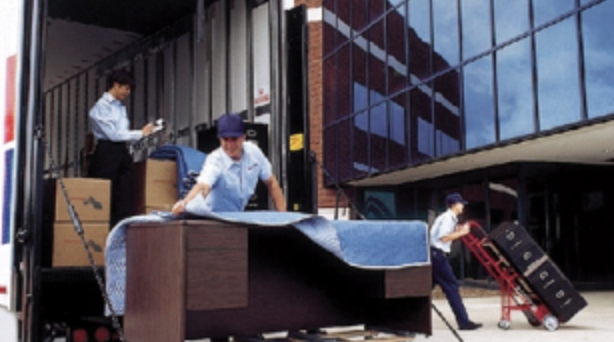COMMERCIAL MOVERS NEAR ME
Movers Near Me will help your staff, property manager, facility manager, real estate agent, developer, builder and insurance agent find the best commercial movers. Why give your clients our website instead of a direct referral – putting the liability on our site for providing accurate information releases any responsibility from the movers damages of any type. Let us get find the best commercial movers for your relocation.
Commercial Move Planning
When considering commercial movers, the process involves additional considerations beyond those for residential moves. Commercial moves often require more planning, coordination, and understanding of specific regulations. Here’s a guide to help businesses navigate the complexities of hiring commercial movers in the U.S., including legal and government regulations.
SPECIAL CONSIDERATIONS FOR COMMERCIAL MOVES
Table of Contents
2
3
1. Commercial Move Management
- Minimizing Downtime: One of the key concerns for businesses is minimizing disruption. Work with movers who can plan the move during off-hours, weekends, or in phases to ensure that business operations continue with minimal interruption. Read more about packouts if water or fire loss is involved in a commercial move.
- Moving Sensitive Equipment: IT equipment, medical devices, and other specialized machinery require careful handling. Verify that the moving company has experience with these items and uses the proper packing materials and methods.
- Data Security: For businesses dealing with sensitive data, it’s crucial to ensure that data is securely handled during the move. Some movers offer secure data transportation services, including encrypted containers and certified handling processes.
2. Compliance with Industry-Specific Regulations
- Healthcare: For medical offices, HIPAA (Health Insurance Portability and Accountability Act) compliance is crucial. Ensure that movers handling patient records or other sensitive materials follow HIPAA guidelines.
- Finance: Financial institutions must adhere to strict data protection regulations, such as those mandated by the SEC or FINRA. Movers handling documents or electronic records must be aware of these requirements and have protocols in place to ensure compliance.
- Hazardous Materials: Businesses dealing with chemicals or hazardous materials must comply with federal and state regulations on the transport of these items. Movers must be certified and equipped to handle such materials safely.
Contractual Considerations
- Comprehensive Contracts: Commercial moving contracts should be detailed and include all aspects of the move, such as specific services provided, timeline, cost estimates, and terms of payment. Ensure that any additional services or contingencies (e.g., delays, storage needs) are covered.
- Service Level Agreements (SLAs): Consider incorporating SLAs that outline the expected performance levels of the moving company, such as timelines, handling of specific items, and response times for any issues that arise.
- Penalties for Delays: Commercial moves often have tight deadlines. Consider including penalties for delays or disruptions that result in financial loss to your business.
- Insurance: Insurance requirements from the property must be met. Learn more about moving insurance.

Compliance with Labor Laws
- Unionized Workforces: If your business operates in a unionized environment, ensure that the mover’s labor practices align with your existing agreements. Some commercial movers may also employ union labor, which could impact cost and scheduling.
- OSHA Compliance: The moving company should comply with Occupational Safety and Health Administration (OSHA) regulations, particularly if the move involves heavy equipment or work in environments with specific safety requirements.
Selecting a Commercial Mover
- Experience and References: Choose a mover with extensive experience in commercial relocations, particularly in your industry. Ask for references from other businesses of similar size and scope.
- Accreditation: Look for movers accredited by professional organizations such as the American Moving & Storage Association (AMSA) or the International Association of Movers (IAM). These organizations often require members to adhere to higher standards. The IOMI has a directory of office movers available.
- Review Contract Thoroughly: Before signing, review the contract with legal counsel to ensure that all terms are favorable and that there are no hidden fees or unfavorable clauses.
9. Coordination and Planning
- Project Management: Many commercial movers offer project management services to coordinate the move, including scheduling, communication, and overseeing the packing and unpacking process.
- Communication Plan: Establish a clear communication plan with the mover, including key contacts, regular updates, and a schedule for progress meetings.
- Inventory Management: Keep a detailed inventory of all items being moved. This is crucial for tracking purposes and will be necessary if you need to file any claims.
10. Post-Move Considerations
- Unpacking and Setup: Some movers offer post-move services, including unpacking, setting up furniture and equipment, and ensuring that everything is operational before employees return to work.
- Debris Removal: Commercial moves often generate a significant amount of waste, including packing materials and old equipment. Ensure that the mover provides debris removal services or arrange for a third party to handle this.
- Final Walkthrough: Conduct a final walkthrough with the moving company to ensure that all items have been moved and set up according to the plan. Address any issues immediately before the mover leaves the site.

